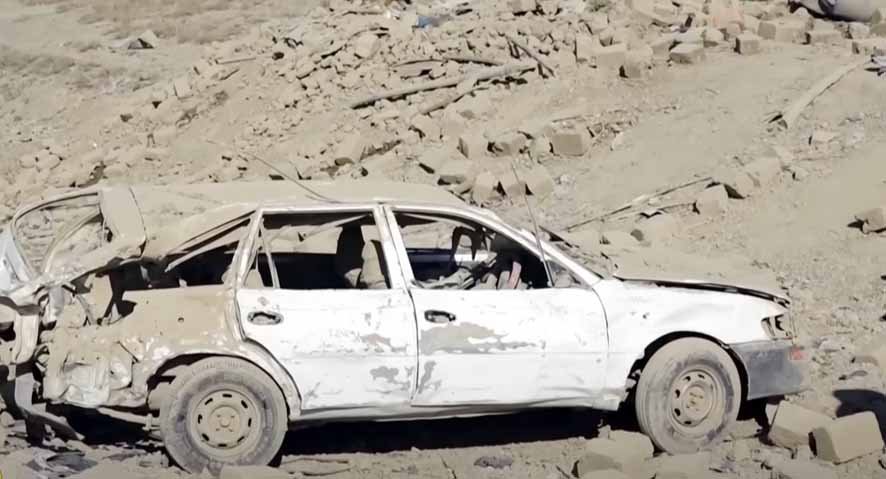In a significant escalation of cross-border hostilities, Afghanistan’s Taliban troops have launched targeted attacks on numerous areas within Pakistan. Direct response to recent Pakistani airstrikes that destroyed portions of Paktika province, resulting in civilian casualties and sparking general indignation is this move.
Conflict Background
Targeting a suspected insurgent training location in Afghanistan’s Barmal District, Paktika province, Pakistani military planes launched airstrikes on December 24, 2024, starting the most recent violent conflict. Afghan officials claim that over 25 deaths—including women and children—resulted from the strikes. Local people also claimed that the busy commercial Murg Bazaar was severely destroyed.
Claiming Pakistan breached international laws and Afghan sovereignty, Afghan officials denounced the attacks. In a harshly worded statement, the Taliban threatened Pakistan of dire consequences, calling the attacks “unjustified aggression.”
The Afghan Taliban answered on December 28, 2024 with a sequence of deliberate strikes on “several points” within Pakistan. The Defense Ministry of Afghanistan said that the operation aimed at “specific centers and hideouts” allegedly engaged in planning strikes on Afghan territory.
Casualties and conflicted narratives
Conflicting accounts have surfaced about the impact of these retaliation strikes. A pro-Taliban media site said that 19 Pakistani soldiers were killed, plus three Afghan civilians trapped in the crossfire. However, Pakistan’s military denied these reports, asserting that its forces successfully repelled the attacks while causing “significant losses” to the Afghan side.
Pakistani officials have accused the Taliban of using the attacks to divert from their apparent failure to stop cross-border terrorism. In contrast, the Taliban argue that their actions were solely defensive, intended at defending Afghan sovereignty.
Impact on Local Communities
The cross-border violence has significantly affected populations on both sides of the border.
In Afghanistan’s southern Khost province, public demonstrations erupted in support of the Taliban’s retaliatory attacks. Thousands of residents gathered, yelling anti-Pakistan chants and showing solidarity with the victims of the attacks. “This is not just about borders; it’s about dignity and justice,” said Rasheedullah Hamdard, a community leader.
In Pakistan, inhabitants of impacted border regions expressed anxiety and resentment. Many criticized both governments of failing to safeguard citizens caught in the violence. “We live in constant fear,” said Gul Muhammad, a resident of North Waziristan. “Every explosion takes away our peace, and we feel forgotten.”

Regional and International Implications
The rising violence has heightened fears about stability in the region. Afghanistan and Pakistan share a long, porous border regularly used by extremist groups, heightening tensions between the two states. Both countries have traded accusations of sheltering militants responsible for cross-border violence.
Pakistan has long accused the Afghan Taliban of hiding members of Tehrik-i-Taliban Pakistan (TTP), a militant group responsible for multiple assaults in Pakistan. Meanwhile, the Taliban leadership in Kabul has refuted these charges, stating that it does not allowed its territory to be utilized for launching operations against any nation.
The international world, including the United Nations, has expressed alarm over the growing violence. UN Secretary-General António Guterres has encouraged both states to display moderation and engage in constructive conversation. “The cycle of violence must end to prevent further loss of life and suffering,” Guterres said in a statement.
Economic and Humanitarian Consequences
The prolonged war has hindered economic and humanitarian activities in the region. Key border crossings have been shuttered, hurting thousands of traders and cutting off crucial supplies to outlying locations. Aid agencies have warned of a potential humanitarian crisis as displaced families struggle to find refuge and basic essentials.
Future Prospects
The scenario shows the delicate condition of Afghanistan-Pakistan relations. Without real engagement and international mediation, analysts warn that the dispute might grow further, destabilizing the area and hindering efforts to battle terrorism.
Both states under great pressure to solve local and international challenges. While Pakistan grapples with increasing militant attacks, the Afghan Taliban face growing scrutiny over their ability to govern and maintain regional peace.
Sources and References
- Reuters: Afghan Taliban forces target ‘several points’ in Pakistan in retaliation for airstrikes
- AP News: Afghan forces target Pakistan in retaliation for deadly airstrikes
- Al Jazeera: Afghan Taliban hit ‘several points’ in Pakistan in retaliation for attacks
- France24: Afghan Taliban forces hit ‘several points’ in Pakistan in response to air strikes, Kabul says
- Amu TV: Pakistan confirms Taliban attack on border outposts
- The Telegraph: Afghan Taliban’s attacks on Pakistan raise fears of all-out war
- UN Statement: UN Secretary-General’s statement on escalating Afghan-Pakistan violence

